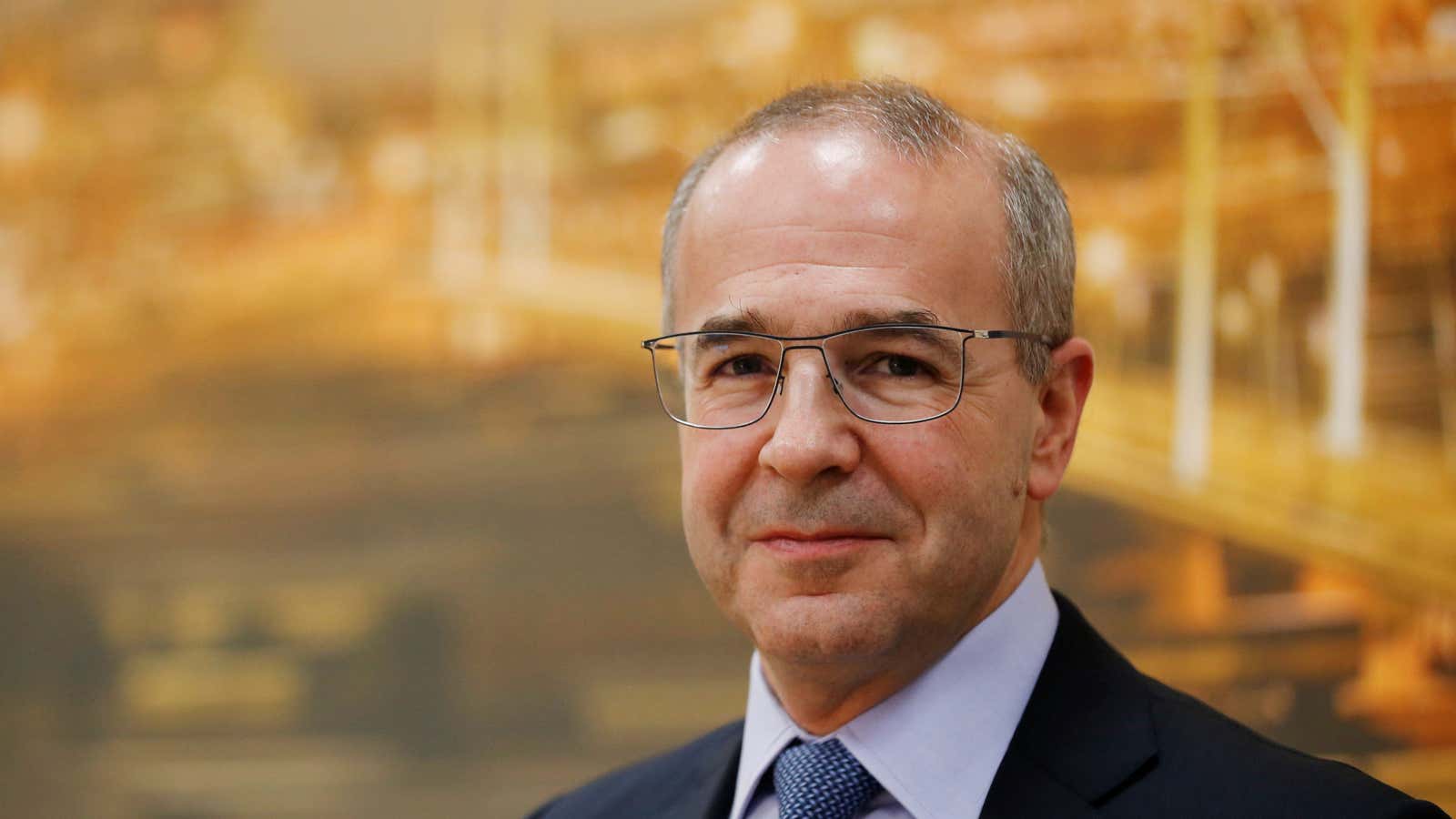McKinsey & Co. has taken on a sinister reputation in recent years, and not only among the leftists who have long opposed the global consulting firm’s work supporting cutthroat capitalism for the world’s largest companies, or its contracts with autocratic governments.
The secretive firm has been implicated in a series of crises, most notably involving its hand in boosting the sales of Purdue Pharma’s Oxycontin, and fueling the US opioid crisis. It also signed what turned out to be an illegal deal with a state-owned utility in South Africa, and has been called out by investigative journalists for supporting the highly controversial Immigration and Customs Enforcement agency under the Trump administration.
Not one of these situations was created by Kevin Sneader, who became head of the firm in 2018, and yet when the company’s 650 global partners voted this week, Sneader was not elected to a second term as global managing partner.
What did Kevin Sneader do wrong?
According to insider sources who spoke to the Wall Street Journal, “Sneader’s response to those crises has amounted to moving McKinsey from a culture that relied on individual partners’ judgments to one based on systems, rules and processes, fueling dissent within its senior ranks.” Bloomberg reports that Sneader wanted to install a vetting process that would allow partners to avoid clients that may turn out to be, for example, dope pushers. But the global partners at McKinsey are apparently used to running their own shows and, arguably, getting themselves into all kinds of trouble, and they reportedly do not want to give up their freedoms.
If this take is accurate, what’s perplexing is how McKinsey believes it could possibly continue to be viewed as a forward-thinking organization—one that can advise other companies on systems and organizational culture—in a world where there’s more pressure than ever on firms to be transparent, to use protocols to avoid individual blind spots, and to balance autonomy and the innovation and agility that comes with it with the checks and balances that ensure a company is purpose-driven—the number one trait of companies that are “future-ready,” according to McKinsey’s own research.
McKinsey: Diversity champion?
McKinsey also has made diversity a focus of its research. But the two people who are reportedly up to replace Sneader, a white man, are also white men. According to the Financial Times, they are Bob Sternfels, a senior partner in the San Francisco office, who was the runner-up to Sneader in 2018; and Sven Smit, chairman and director of the McKinsey Global Institute think tank and a senior partner in the Netherlands.
Before the vote that put Sneader in power three years ago, the long list of candidates to replace former leader Dominic Barton included Vivian Hunt, then managing partner for the UK and Ireland, and the sole woman and only person of color being considered for the top job at the time. Quartz at Work reported then on how McKinsey had a real opportunity to walk its talk on diversity. Hunt has herself co-authored McKinsey research into the value of racial and gender diversity, including an examination of what she has called the acid test for most business people: How does it impact performance?
Hunt has since changed roles at McKinsey (and received a damehood in the UK). As a senior partner, she now offers leading firms strategic advice on performance transformation and productivity growth, as well as diversity and inclusion, and leadership.
This time she did not make the long list, though two other women did. Neither reached the final round, however. The global partners vote in a staggered system that CNN Money once described as “a convoluted three-tiered selection,” that bans contenders from campaigning for themselves.
